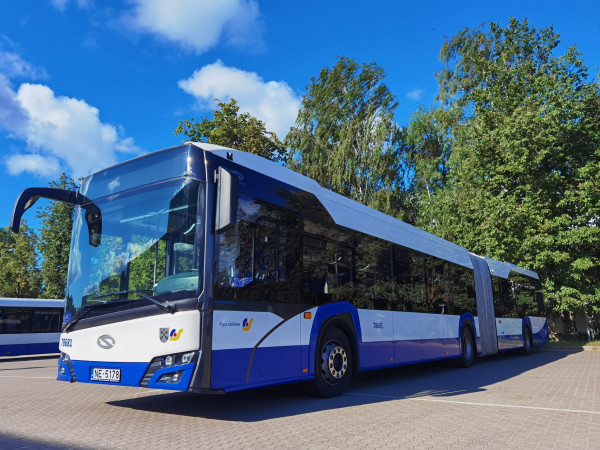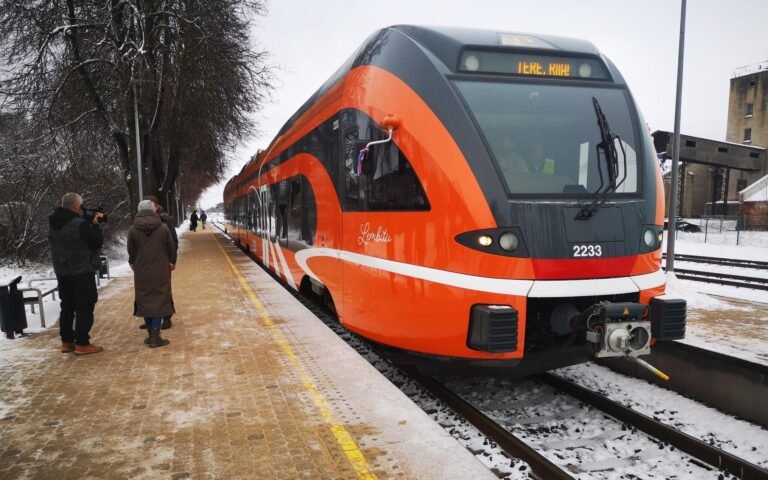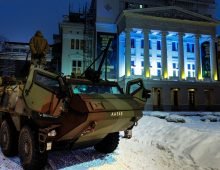Starting Monday, a new Škoda train is conducting test runs at its maximum permitted speed on the Keila-Klooga railway section in Estonia, with additional safety measures in place.
“High-speed test runs are a crucial part of the train certification process,” Mariis Adamberg, marketing manager at Estonia’s state-owned passenger train operator Elron, said. “The purpose of the speed tests is to ensure the train’s stability at its designed operating speed of 160 kilometers per hour.”
Adamberg specified that the tests are being conducted at speeds up to 176 kilometers per hour, and to ensure railway safety, manned guards have been placed at crossings and pedestrian paths on the Keila-Klooga section.
Type tests are carried out on trains that have not previously operated on Estonian railways. These test runs determine the train’s suitability for operation on Estonia’s infrastructure and are a prerequisite for the train’s certification. The first train must complete 6,000 kilometers without passengers and without major technical issues to assess its reliability and compliance with contract conditions. After successful type tests, all delivered trains must undergo a 5,000-kilometer inspection period in regular service with passengers. In total, each train arriving in Estonia will undergo at least 70 different tests.
The Škoda EMU 21Ev electric train is a dual-system train capable of operating in both 3-kilovolt and 25-kilovolt networks. Initially, the train will be tested in an existing 3-kilovolt network, and starting in February, it will be tested in a 25-kilovolt network currently being constructed by Estonia’s state-owned railway infrastructure company Estonian Railways (Eesti Raudtee). The new trains are expected to begin serving passengers on the Tallinn-Tartu line from September next year, once the infrastructure owner, AS Eesti Raudtee, completes electrification of the entire Tapa-Tartu railway section.
Between 2024 and 2026, Estonia will receive a total of 16 new Škoda electric trains, 11 of which are for long-distance routes and five for commuter routes.
The long-distance trains have 236 seats, 22 more than the current four-car trains, as well as 15 bicycle spaces and a dining area.
The commuter trains have 262 seats, matching the number in the current four-car trains and exceeding the 188 seats in the three-car version. They also include 18 bicycle spaces.
Source: BNS
(Reproduction of BNS information in mass media and other websites without written consent of BNS is prohibited.)


















